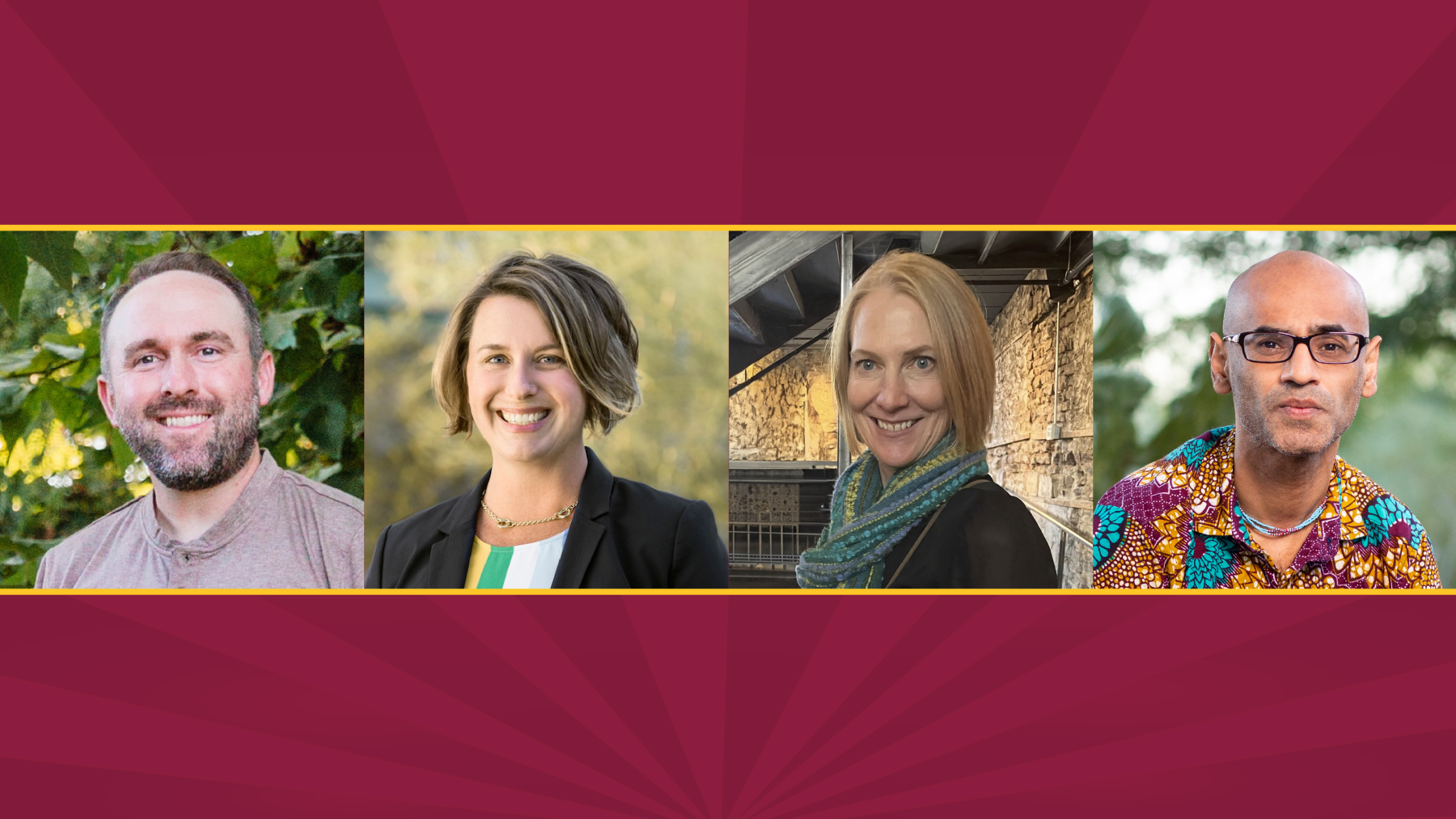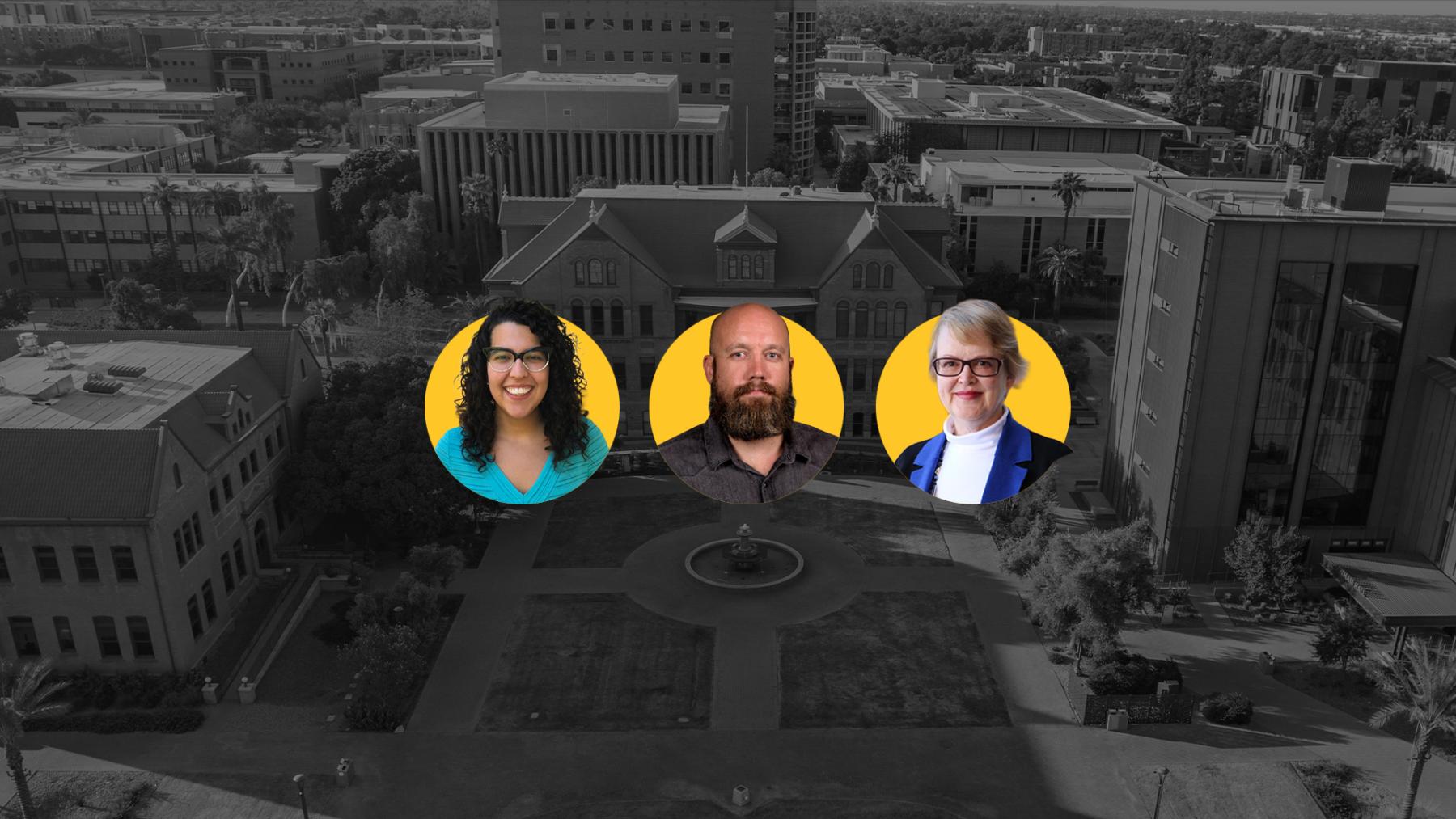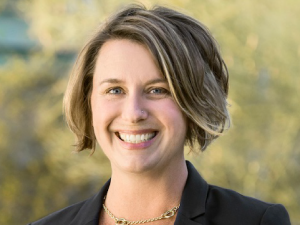
Amy Markos - Outstanding Faculty Mentor awardee spotlights
As we celebrate this year’s Outstanding Faculty Mentors, we would like to showcase the winners’ remarkable work in mentoring. Their stories illustrate the profound impact of mentorship on both the mentor and mentee. These heartwarming testimonials aim to express their gratitude for the difference their mentor has made in their lives. We are fortunate to have such dedicated and caring individuals as mentors in the ASU community!
Amy Markos - Outstanding Instructional Faculty Mentor
Clinical Associate Professor, Mary Lou Fulton Teachers College
Amy Markos is a clinical associate professor specializing in enacting pedagogies and crafting policies to support learners and educators with the skills and knowledge to thrive in various educational contexts. Her research interests include understanding educators' dispositions and beliefs about diverse learners, using critical reflection, and program design, evaluation, and assessment. Amy's mentorship philosophy is grounded in diversity, inclusion, and community-building; she emphasizes the value of diverse experiences among her mentees.
What does being recognized as an Outstanding Faculty Mentor mean to you?
I am lucky to be able to do what I love: mentoring doctoral students. The best part of my job is building relationships with a group of students over two years, seeing them design and implement an action research study, analyze their data and successfully defend their dissertation. Being recognized as being good at what you love is next level. My students’ success (school, life, scholarship, research) is my success.
This award is a testament to those who have mentored me: my doctoral dissertation chair, Beatriz Arias; my mentors in my current work in the Mary Lou Fulton Teacher’s College, Josephine Marsh, Gustavo Fischman and Jill Koyama (to name a few); and my grad school sisters, the fantastic women that taught me the power of collective, peer mentorship that can begin in graduate school and extend through life: Angela Clark-Oates, Susanna Steeg-Thornhill, Jayne Lammers, Silvia Nogueron and Melissa Rivers.
It is also a testament to my students who have created space in their lives and work to be mentored by me. In our doctoral program, students don’t get to choose their dissertation chair; my students are assigned to me. This means they must be willing to trust me to create a relationship. I could not have been a successful mentor without their openness and trust. So, this award is also a testament to my students, who choose to grow, support and be supported in our mentorship relationship. Thank you, Kristen Pena, Megan Bettis, Nadine Al Awar, Sachiko Oates, Lee Preston and Stephanie Santos Youngblood, for nominating me — and more importantly, for being a Leader Scholarly Community that values the collective success as much as individual success. You all make mentoring easy!
What is the value of mentorship?
Much of what I know about the value of mentorship I learned as a mentee. The value of mentorship lies in fostering a strong and supportive mentor-mentee relationship grounded in diversity, inclusion, community-building and continuous learning.
When a mentor can prioritize inclusivity and recognize and value their mentees' diverse backgrounds, perspectives, and experiences, the value extends beyond academic pursuits to embrace the whole student, creating an environment where every student feels supported.
When a mentor can create a mentorship community, success is not solely measured by individual achievements but by the strength of the cultivated community. When a mentor actively seeks feedback, engages in reflective practices, and values ongoing learning, everyone in the relationship experiences the value of continuous learning. This allows for adaptability and flexibility in mentoring, fostering a more effective mentorship.
Do you have any advice for a new mentor?
Be open about your knowledge gaps. When mentoring, it’s important to say, “I don’t know,” “I am sorry I didn’t get that right,” or “Something I’ve learned is…” One of the values that comes from a strong mentor/mentee relationship is the change in knowledge, skills and dispositions. As a mentor, we have as much to learn as our mentees. Being open to what you do and do not know opens up possibilities for growth, which will ultimately benefit you and your mentees. It also models vulnerability. So, I would encourage new mentors to be open about their knowledge gaps with both colleagues and mentees. This will cultivate mutual respect, shared learning and trust.
Build a Mentorship Community. Success is not solely measured by one person’s achievements but by the strength of the cultivated community. As a Leader Scholar Community Chair, I can concurrently mentor students. This means I must foster a collaborative, supportive and enriching environment for the group. When I am successful at this, it creates a mentorship community that contributes to a sense of belonging, provides diverse perspectives, and offers opportunities for growth and success. Circling back to the first idea of being open about your knowledge gaps — I would encourage a new mentor to culture a collaborative mentorship community so that the learning and support goes beyond a 1:1 relationship and that mentees see their success, in part, in the success of the collective.
Amy Markos' nominating mentee: Kristen Pena
What is the value of mentorship? How has it impacted you academically, professionally or personally?
The value of mentorship is having someone in my corner who recognizes the value of my experiences and ideas (even if they are different) and wants to support and guide me in reaching my goals. Support and guidance can mean many things — a thought partner, a critical eye, an advisor or a role model — more than anything, a mentor offers their mentees a sincere belief in their ability to succeed.
Academically, it took me a long time to ‘figure out’ mentorship. I’m a first-generation college student and I wish I knew to look for mentors sooner! It wasn’t until my doctorate program that I leaned into finding and relying on mentors. They are incredible resources for navigating academia, including hidden challenges. Professionally, I have been fortunate to work with many thoughtful and strategic leaders in higher education. Navigating opportunities to advance professionally, making new connections and identifying valuable project opportunities have all been facilitated with the help of my mentors.
On a personal note, my mentors have made me feel like I belong. I try to give back to my colleagues and other students as much as I’ve learned and benefited. There’s a saying about surrounding yourself with people who will say your name in a room full of opportunities — I strive to find those people as mentors and colleagues, but more importantly, be someone who helps connect others to opportunities.
Why did you nominate your mentor?
I nominated Professor Markos for the Outstanding Faculty Mentor Award for many reasons; first, her unshakable belief in my abilities and her recognition of my ideas and experiences, which have been instrumental to my academic success. It takes a special kind of person to complete a doctorate. It takes an even more special person to mentor a Leader Scholar Community of doctorate students with the level of individualized, inclusive support she did.
Throughout my doctorate journey, I asked her to wear many hats – advisor, mentor, thought partner, critical eye, and supporter — and she effortlessly transitioned through them all.
My educational journey as a first-generation college student, full-time higher education professional, wife, mother, sister, daughter and friend was hard. It would have been impossible without her, which is why I nominated her. Amy was in my corner from day one. More than that, I also saw how she supported my cohort mates in our LSC; she juggled our needs and ideas with empathy and support. She created a community for us all to lean on one another.
More stories from the Graduate Insider

Graduate education is an adventure
About eighteen months ago, I set out on a journey walking the islands of the Dodecanese during a sailing trip in Türkiye and Greece with several friends. Along the way, I found winding paths, timeless villages and breathtaking views of sea and sky. That experience got me thinking about how adventure shows up in other parts of life, especially in learning.

Promoting resilience and well-being in Ghana — and across the globe

From practice to presentation: How to deliver a winning faculty job talk
Giving a job talk can feel like the most high-stakes presentation of your academic job search. It’s not just a research seminar—it’s your opportunity to demonstrate vision, communication skills, and fit within a department. In a recent Lunch and Learn, faculty members Associate Professor in School of International Letters and Cultures, Anita Huizar-Hernandez, Professor in School of Life Sciences Jeffrey Jensen, and Professor in Department of Physics Patricia Rankin shared concrete strategies to help graduate students and postdocs succeed as future faculty candidates.
